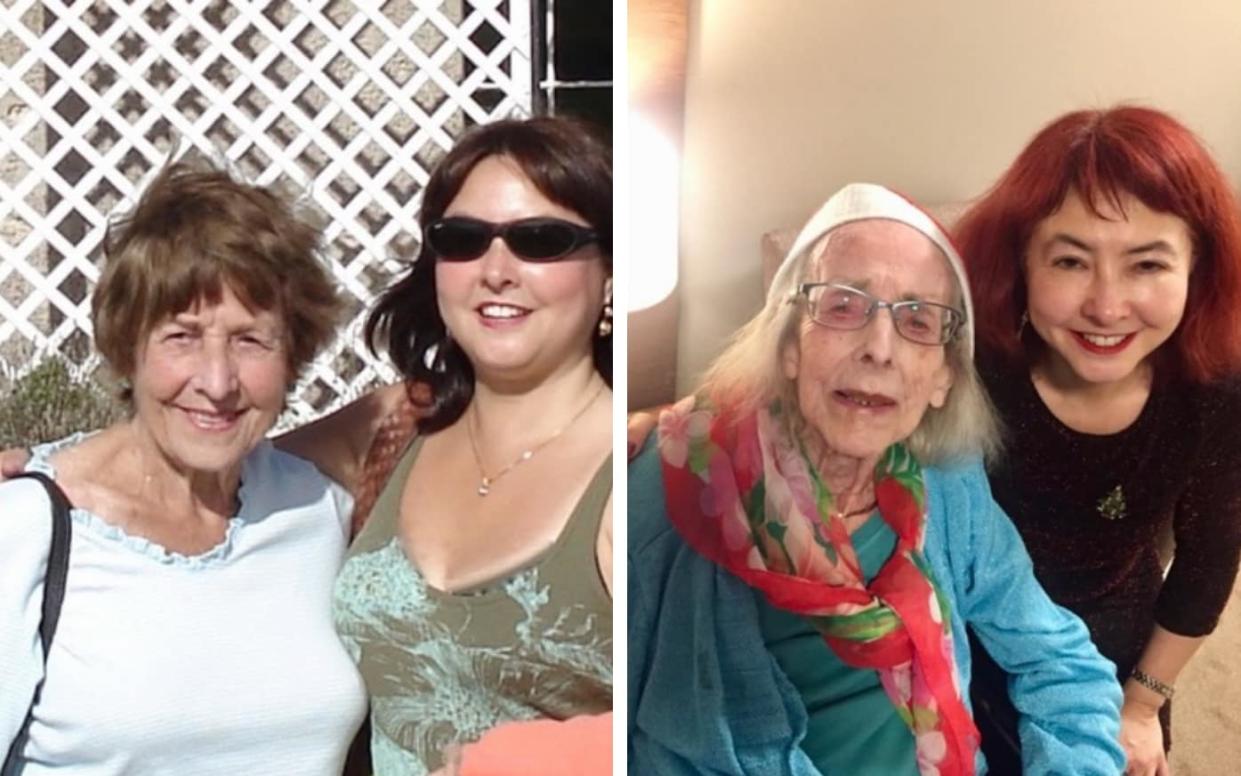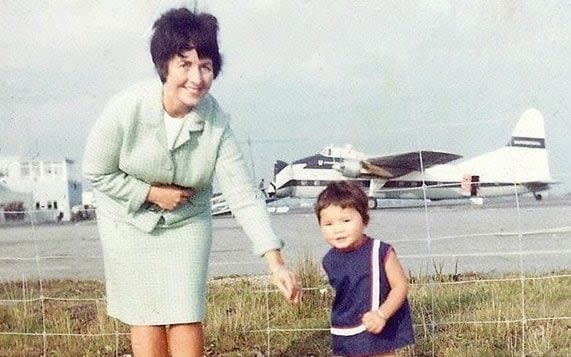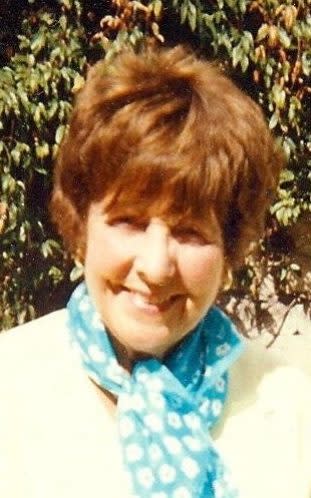‘My mum’s personality completely changed – she had no idea who I was’

The death of EastEnders and Carry On star Barbara Windsor has been keenly felt by fans of her acting career, but another group mourning her loss are those in the Alzheimer’s care community.
After being diagnosed in 2014, Windsor went public about her illness in 2016 and became a formidable ambassador for the Alzheimer’s Society, including delivering a petition signed by 100,000 people to Boris Johnson last year demanding better care for people affected by dementia. She argued that the system was “completely inadequate, unfair, unsustainable and in dire need of more money”.
At the time of her death, Windsor was in residential care after her husband Scott Mitchell admitted struggling to cope with the demands of caring for her.
Ming Ho, a television writer who wrote for Windsor during her time on EastEnders, has the utmost sympathy for Mitchell, having experienced life as a sole carer for her mother, Glenys, who died of Alzheimer’s disease in January after 20 years of living with the illness.
“Over the years, it just became all-encompassing, and yet, we were still on our own behind closed doors; nobody else was witnessing mum’s condition for the most part,” explains Ho. “I can very much sympathise with Scott, Barbara’s husband. It’s hard enough when there’s a whole family to rally around but if you’re a sole carer, if it’s your partner, or your parent, you’re the only person dealing with it, not only are you practically dealing with all of those things, but mentally and psychologically, it’s very stressful, because often other people don’t understand what you’re dealing with, because they don’t see it.”

Ho’s mother first started developing symptoms of Alzheimer’s in her early sixties, after the triple shock of losing her husband to cancer, her daughter moving away for university, and retiring.
“She’d always been very close to me, but I think she started to become even more clingy, she started to have some quite irrational emotional responses to things, which again, at the time, you say, well, that’s just shock,” explains Ho. “It would be fleeting and transitory and in between that she’d be her normal, bubbly, loving, outgoing self.”
She started to get confused over memories, or forget appointments, but this didn’t sink in for a while, as they were easy to work around. “You don’t realise you’re a carer until very late on because you just gradually take on more and more responsibility to support them in the things they’re getting confused with,” says Ho.
One of the hardest things to deal with was the way her mother’s personality changed, says Ho, recalling an occasion where she became paranoid and worried about a neighbour being able to see her washing up brushes.
“She began to get paranoid delusions that made her very scared if she was alone for even a moment. So, you know, by 2011, even if I was at home with her 24/7, if I left the room to go put the kettle on or go to the loo or put some washing on, she would think she was totally alone and she hadn’t seen anyone for months. She would get very distressed and would be shouting: ‘Where are you?’
“Very much like Barbara, my mum was the most bubbly, articulate, outgoing, funny person and she had been all her life, so when she finally lost it, it was a huge shock,” says Ho. “What I found hardest was, firstly, the fact that mum could never acknowledge it herself. I think Barbara Windsor, in that sense, was lucky in that she was able to get a diagnosis, understand and acknowledge it and speak out about it. I think she was amazing. But you know, there are lots of people like my mum who aren’t able to do that because the symptoms that cause their dementia also stop them from recognising their lack of capacity.”

As Alzheimer’s took hold, Ho watched her mother’s worldview shrink as she lost the context to understand it. Relationships with friends and neighbours became strained as she was unable to remember details about their lives or even understand why they were grieving loved ones who passed. She lost the ability to read and write, and could no longer negotiate between reality and fiction. She’d warn her daughter that fictional murderers from Miss Marple or Poirot were out to get her.
“The world gets smaller and smaller, because you can’t introduce anything unpredictable to it,” says Ho. “She would often be very strange with me. And I would feel quite frightened by that, because she would hardly look at me, and sometimes she would be quite antagonistic and nasty. And now I understand why because, of course, she didn’t really know who I was. So she was scared, there’s just a woman in my house, you know, and she’s telling me what to do.” On the blog she started keeping to document her care of her mother, Ho recalls hugging her mother after she was admitted to residential care and begging her not to forget her.
“Again, I sympathise with Scott, who put Barbara into residential care earlier in the year, because you only do that when you’ve absolutely exhausted every other possibility,” says Ho. “You know, people can be very judgmental about it. But honestly by the time you get to that stage, Alzheimer’s patients usually need 24-hour supervision, which a person on their own can’t give.
“And once somebody is in care, it doesn’t mean you stop being their carer; it just means you’re not doing the physical hands on all the time by yourself. You are still doing everything else. You become the memory of the person, who is able to tell other people what that person was about.”
And even with all the help, it never gets any easier for those whose loved ones are suffering from the disease.
“You feel like you’re losing your sanity because you’ll see a flash of something there, a flash of connection, then it’s gone, and until you go through it, it’s impossible to know how that feels.
“You can only applaud Barbara Windsor because although most of us will know someone who has faced dementia, most of us don’t understand it. Until you have someone who can acknowledge it themselves and express it themselves and has the bravery to talk about it without being hazy, people just won’t get it.
“When they think of dementia, some people often glibly say ‘she may not remember your name but she still loves you’, and in the early stages that may be true, but for me that stopped being true 10 years before she died. By the time she died she’d forgotten that she had a daughter or a husband or that I even existed.”
And like Barbara Windsor, now that Ho has seen the adult social care system from the inside, she does fear about its ability to cope in the future. “Being in the home allowed my mum another 10 years of life that she wouldn’t otherwise have had, because I was there to be her advocate. People who are on their own in care homes now are entirely dependent on staff who do their best, but inevitably, they can’t be everywhere at once. There’s not enough money in the sector. It’s a hidden need: people with dementia require huge advocacy and investment in financial, practical and emotional support.”

 Yahoo News
Yahoo News 
